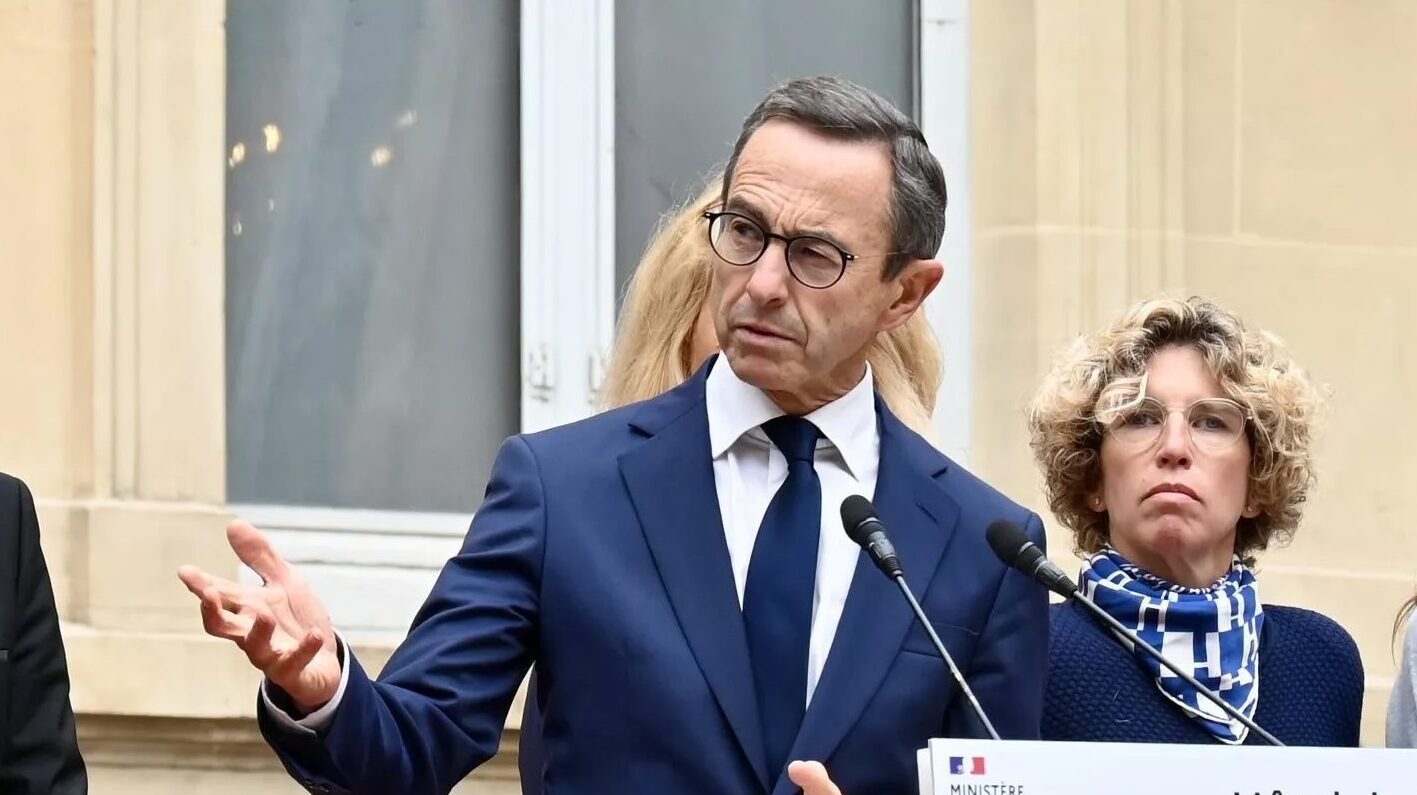
Bruno Retailleau
Photo: Ministère de l’Intérieur / D.MENDIBOURE
Two days after the funeral of a young woman named Philippine—raped and murdered near Paris, an avoidable tragedy which moved the whole of France—Interior Minister Bruno Retailleau took part in a television interview to set out his views on immigration and crime. He said he was in favour of a referendum on immigration.
Retailleau, former leader of the LR senators appointed interior minister in the new French government headed by Michel Barnier, gave a lengthy interview on Sunday, September 29th to the LCI news channel. His firm statements on the direction of France’s domestic policy—debt, immigration, crime—provoked outrage on the Left but were met with enthusiasm on the Right.
The interview comes in the wake of the murder of 19-year-old Philippine near Paris. The suspect was a Moroccan who had already been convicted of rape and was legally obliged to leave French territory. The circumstances of her death and the profile of the killer have sparked outrage and prompted the new minister to react firmly—verbally at first, pending action. In this case, the minister believes that we have reached
a point of imbalance where the rules end up protecting dangerous individuals more than the victims of society.
Retailleau made a number of comments that sparked controversy. He said that for him, as for “millions of French people, immigration is not an opportunity,” thus breaking with the mantra asserted by the Left for decades that immigration is an “opportunity for France.” Instead, he said he was in favour of holding a referendum on immigration.
This decision has long been called for by the Rassemblement National (RN), but it is currently deemed unconstitutional because immigration is not currently included in the scope of issues that can be put to a referendum. Aware of this legal stumbling block, Retailleau said he was in favour of revising the constitution to allow this scope to be extended:
Immigration is one of the phenomena that has had the greatest impact on French society over the last 50 years, without the French ever having had the opportunity to express their views.
The minister reiterated that any measures to control immigration had to be part of an overall plan, which could only be applied once the balance of power had been re-established with partner countries, in particular by using international levers such as the granting of visas, development aid and trade—a way for him to send a signal to the Minister of Foreign Affairs about the need for his collaboration.
While outlining possible reforms to immigration law—reinstating the offence of illegal residence, extending the period of detention in the event of deportation—the minister went further by questioning the dominant discourse on the supposed benefits of multiculturalism. According to the minister, a multicultural society is likely to tip over into a “multiracist society”
I think that a multicultural society runs the risk of also becoming a multiracist society. I am weighing my words carefully.
Retailleau also repeated comments he had made in the past, in which he considered that the multicultural society now being sold by the Left was a “dead end” and necessarily “conflictual.”
Unsurprisingly, the Interior Minister’s statements sparked an outcry from the French Left. “What would be the difference with an RN Interior Minister?” raged Boris Vallaud, leader of the socialist parliamentary group in the National Assembly. “We did not form a Republican front on July 7th to hear the words that Jordan Bardella might have uttered if he had been Prime Minister,” added socialist MP Jérôme Guedj.
The left wing of Emmanuel Macron’s party was also outraged, in the person of Prisca Thevenot, spokeswoman for the former government, who called for a distinction to be made between “illegal” and “legal” immigration, so as “not to encourage the RN.” Yaël Braun-Pivet, President of the National Assembly and a member of Macron’s party, also said she was “worried” about Retailleau’s comments, explaining that the rule of law was “neither intangible nor sacred” but was based on “the sovereign people.”
On the Right, Bruno Retailleau’s comments aroused both enthusiasm and caution. Enthusiasm about the substance, but caution about the effectiveness of the promises made by the minister. ‘It’s hard to disagree with Bruno Retailleau’s words’, said Marion Maréchal on X in the wake of the interview, before adding: “The words are certainly pleasing, but it’s the action that we’re waiting for. Interviews won’t be enough to save the next Philippine!”
Double-peine, accords avec l’Algérie, société multiculturelle : difficile d’être en désaccord avec les mots de @BrunoRetailleau ce soir.
— Marion Maréchal (@MarionMarechal) September 29, 2024
Il a même salué l’action de nos alliés conservateurs en Italie et validé la logique de « triple frontière » (extérieure, européenne,…
The President of the Constitutional Council, Laurent Fabius, reacting to the minister’s remarks, immediately closed the door on the possibility of a referendum on immigration: “It would not be constitutional.” Fabius had played a major role in emptying the immigration law passed in December 2023 of its substance. Resistance to the reform proposals put forward by Retailleau looks set to be intense.
